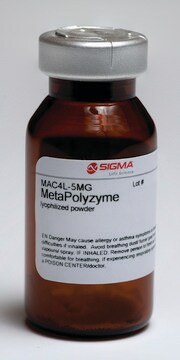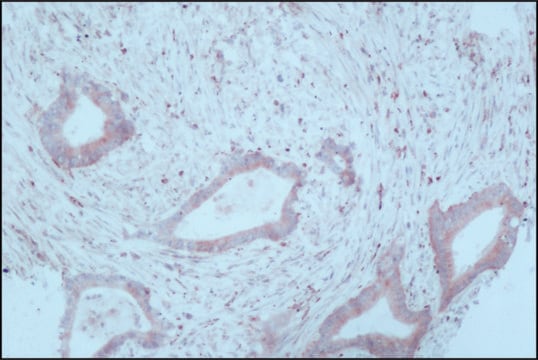203467
Ammonium iodide
99.999% trace metals basis
Synonym(s):
Azanium iodide
About This Item
methanol: slightly soluble(lit.)
Recommended Products
vapor pressure
1 mmHg ( 210.9 °C)
Quality Level
Assay
99.999% trace metals basis
form
crystalline
impurities
≤15.0 ppm Trace Metal Analysis
bp
405 °C/1 atm (lit.)
mp
551 °C (lit.)
solubility
ethanol: slightly soluble(lit.)
methanol: slightly soluble(lit.)
SMILES string
N.I
InChI
1S/HI.H3N/h1H;1H3
InChI key
UKFWSNCTAHXBQN-UHFFFAOYSA-N
Looking for similar products? Visit Product Comparison Guide
Application
Signal Word
Danger
Hazard Statements
Precautionary Statements
Hazard Classifications
STOT RE 1 Oral
Target Organs
Thyroid
Storage Class Code
6.1C - Combustible acute toxic Cat.3 / toxic compounds or compounds which causing chronic effects
WGK
WGK 3
Flash Point(F)
Not applicable
Flash Point(C)
Not applicable
Personal Protective Equipment
Choose from one of the most recent versions:
Certificates of Analysis (COA)
Don't see the Right Version?
If you require a particular version, you can look up a specific certificate by the Lot or Batch number.
Already Own This Product?
Find documentation for the products that you have recently purchased in the Document Library.
Customers Also Viewed
Our team of scientists has experience in all areas of research including Life Science, Material Science, Chemical Synthesis, Chromatography, Analytical and many others.
Contact Technical Service













